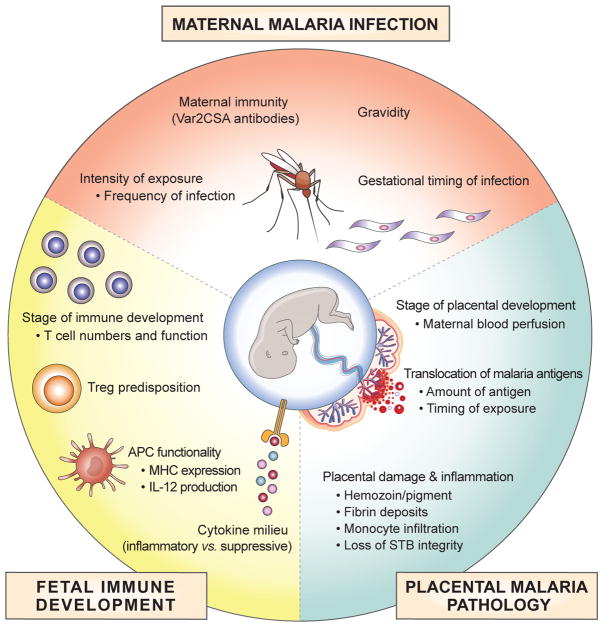Figure 2 (Key Figure). Factors Influencing the Fetal Immune Response to Pregnancy-Associated Malaria.
Maternal, placental and fetal factors all influence how the fetal immune system will respond to in utero antigen exposure. Maternal factors play a role in when and how often parasites are present in circulation and have access to the placenta. This includes the frequency and gestational timing of infections during pregnancy. The severity of these infections and the ability of parasites to infiltrate the placenta are also impacted by maternal immunity and gravidity, particularly the generation of Var2CSA antibodies with increasing parity. Parasite sequestration in the placenta is influenced by the stage of placental development, and is dependent upon the flow of maternal blood into the placenta. The extent of placental histopathology and inflammation, including disruption of the syncytiotrophoblast (STB) layer, also play a key role in both the amount, and the timing of malaria antigen translocation into fetal circulation. Finally, the stage of fetal immune development when malaria antigen exposure occurs may greatly impact the magnitude and type of response that is mounted, as the number and function of APCs and T cells gradually change throughout gestation. In particular, predisposition toward regulatory T cell (Treg) differentiation may occur as an intrinsic property of developing fetal T cells, or could be impacted by the balance between inflammatory vs. suppressive cytokines in the microenvironment.

